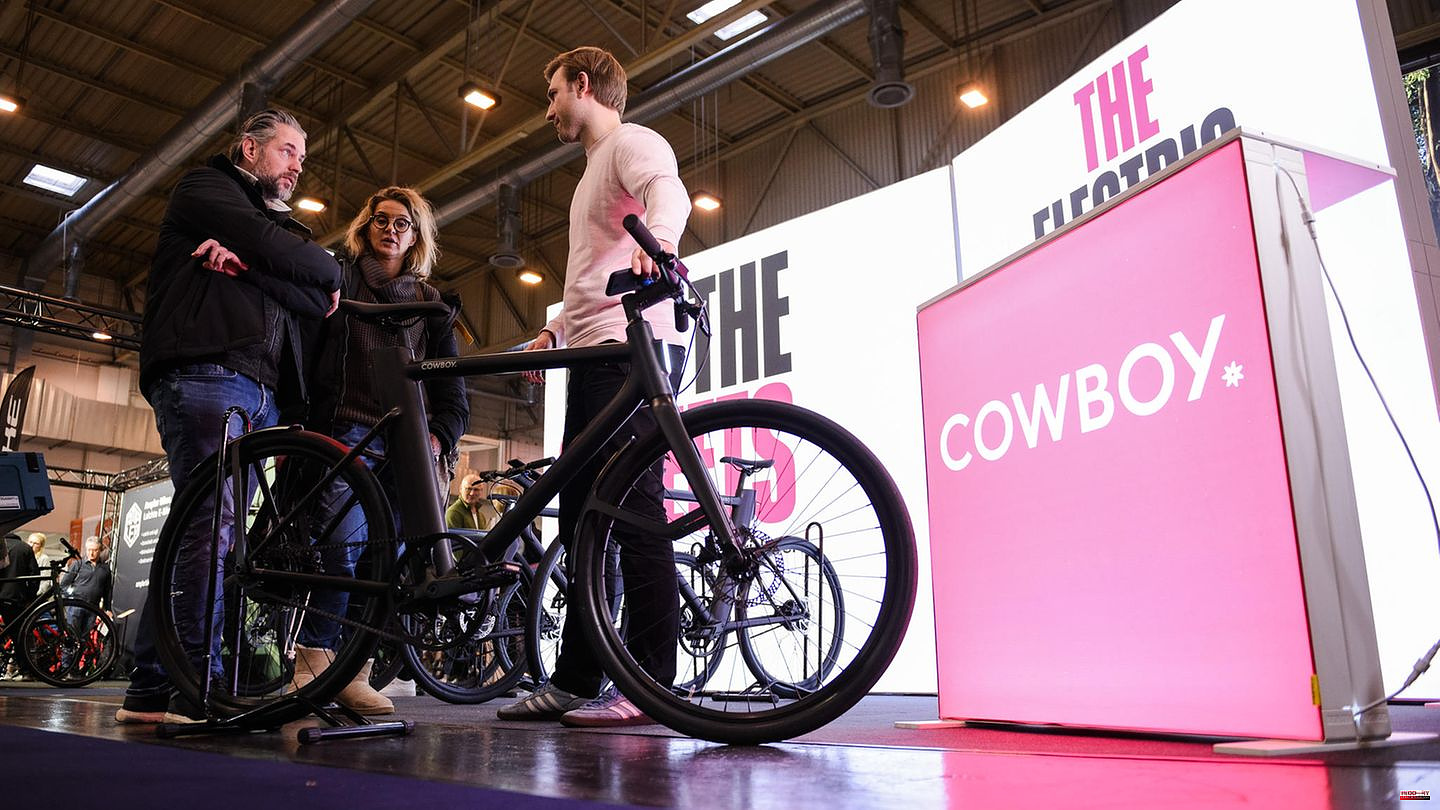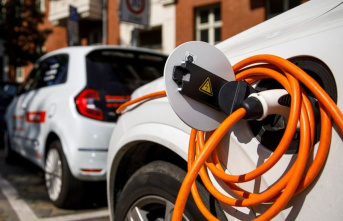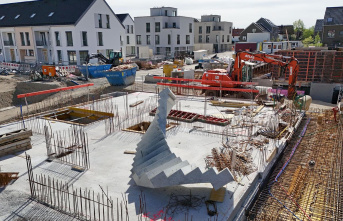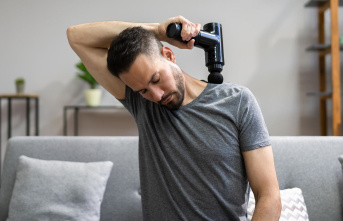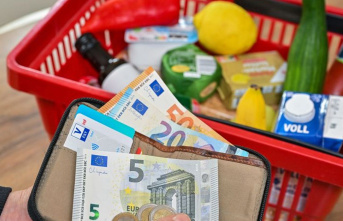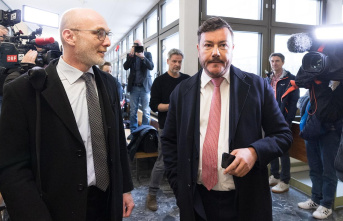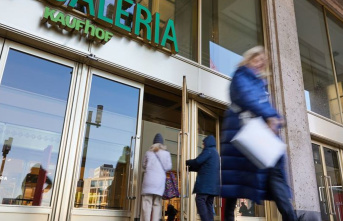This article is adapted from the business magazine Capital and is available here for ten days. Afterwards it will only be available to read at www.capital.de. Like stern, Capital belongs to RTL Deutschland.
When Adrien Roose and his partners founded the e-bike start-up Cowboy, they didn't know much about bicycles. Roose, who is now CEO of the brand, admits this quite openly. Nevertheless, back in 2017, they were sure that they had what it took to transform the bicycle market, just like Tesla did in the car business.
Because electric bicycles were “poorly designed and too expensive,” according to the founders’ analysis, as Roose tells it today. They were located "somewhere between a bike and a wheelchair", only for old people and, above all, not yet digital at all. They wanted to build a bike that could be controlled using software, namely an app. Because, as Roose explains, they certainly believed they had a bit of expertise: how to develop tech applications, how to market them, how to collect millions from investors for them.
The Belgian Roose was not the only one who had the Teslarization of the e-bike in mind. The best-known was the Dutch start-up vanMoof, which had to file for bankruptcy last summer and was later bought by the British tech company MacLaren Applied. The Cowboy founders were able to raise almost $150 million from investors with their promise, according to figures from data collector Crunchbase. The last, rather small financing flowed last spring.
But today survival has become difficult for start-ups in the bicycle market. This not only shows the fate of vanMoof. Roose also freely admits it in the interview: The capital market has practically dried up, the bicycle market has been spoiled by overcapacity or overfull warehouses, and customers are sometimes skeptical about bikes marketed purely online after the experience of the vanMoof bankruptcy.
Nevertheless, we are doing everything we can to hold on, says the CEO. “You try to survive with the money you have” – Roose generally says this about start-ups whose sources of funding have dried up, but then adds that this is his strategy too. According to his statements, Cowboy should achieve a balanced result on an annual basis for the first time this year and be profitable next year - despite the difficult market situation. To make this happen, they are bringing two new bikes onto the market these days.
At the same time, they try to sell their customers not only bicycles, but also service subscriptions, for example for repairs and maintenance for 20 euros per month or for insurance, which costs 10 euros per month. Finally, they say goodbye to their existence as a purely internet brand and boost cooperation with established bicycle dealers for sales and service.
But they suffer from “bad timing,” as Roose admits in view of the bicycle market crisis. The overcrowded bike shops are “not looking for more goods right now”. Almost 30 percent of customers currently come to Cowboy through leasing, often through tax-deferred employee leasing such as that offered by Jobrad.de. But in order to expand the customer base and, above all, to be able to guarantee a broad service, the bike shops should help.
At least, despite everything, there is still hope in the e-bike business. According to the figures that the industry association ZIV published for Germany in mid-March, sales of e-bikes fell only slightly last year, by 100,000 to 2.1 million units. For the first time, more battery-assisted bikes were sold than pure muscle bikes. Sales of the electricity things even increased a little bit because the average unit price for an e-bike rose to 2,950 euros.
The bike market is still groaning under the long-term consequences of the Corona boom, which Cowboy founder Roose describes as a “crazy roller coaster ride”. First there was too much demand for too few bikes, then when all the bikes and parts ordered made it through the clogged supply chains, there were far too many bikes on offer - until today.
But the market potential is huge, says Hannes Neupert, who, as the operator of a testing institute and consultant, has accompanied the industry from its beginnings for over thirty years. “The market is still in its infancy,” he says. Sales in Europe could rise from less than 5 million units last year to more than 30 million in just a few years. Neupert definitely sees the possibility of disruption. “Whoever is a disruptor here can completely turn the market around in five years,” he says. This is due, among other things, to the huge dominance of the supplier Bosch, which supplies the majority of e-bike drives sold in this country.
This dominance leaves a lot of room for innovation, says Neupert. However, no provider, not even a start-up, has yet managed to use this space. “Nobody in the bicycle sector has the level of Tesla,” says Neupert. Poor service, broken communication with customers, underestimated costs for customer support would have discredited many of the new providers - which would leave even more gaps because the classic bicycle manufacturers and dealers still have not grasped the e-bike topic.
After the vanMoof bankruptcy, many customers experienced that they could lose access to their expensive bike if the app was no longer supported. In fact, that is the Achilles heel of the digitally controlled bike, like the one Cowboy offers. There is no on/off button, no switch, without the app the bike becomes almost unusable junk.
E-bike user Patrick Sánchez del Solar also became concerned when he heard about the suffering of vanMoof owners. But he has a cowboy bike and everything usually works for him, he says. He has covered almost 2,000 kilometers on his cowboy bike since August 2022, most of them in Hamburg and Berlin. The manufacturer's bicycle mechanics were there quickly when he requested them via the app. “It works perfectly,” sums up Sánchez del Solar.
Everything depends on the service, says industry expert Neupert. "Any business model of online providers will be destroyed by the terrible service costs." No start-up has yet been able to get this under control. "The problem was that investor money was always easier to get than customer money," he says - which meant that customer orientation was always secondary.
Things are different now, the cowboys from Belgium may be able to turn things around. Even if Neupert describes the move towards the established bicycle trade as an “act of desperation”. Adrien Roose now wants to introduce his two new bikes. They are called cruisers, have thick tires, and for the first time there is a luggage rack and an easy way to mount a child seat. People are now also thinking about cargo bikes, confirms Roose in passing, and then turns back to his “Cruise” models. Bikes for picking around town, as the cowboy CEO says. Maybe spring will bring him closer to break-even.

